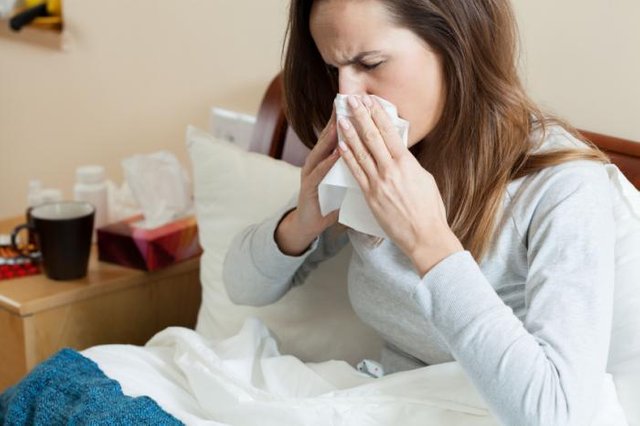Zona1000.com health
Zona1000 - Until now it is not known exactly what causes cause Polip Disease appears. Polypsis itself is a result of inflammation of the nasal or sinus tissues. This inflammation causes the accumulation of fluid-filled cells in the walls of the respiratory tract until finally formed polyps. But as to why this inflammation is still unclear.

There are some things that are thought to cause inflammation or inflammation of the nasal tract wall. Inflammation that occurs can be caused by allergies, bacterial infections, viruses, or fungi.
The presence of abnormalities in the immune system that attacks the nasal tissues can also cause swelling. Hereditary factors also affect the emergence of nasal polyps. If one parent suffers nasal polyps, then you are at a higher risk of getting a polyp. In addition, disruption of the nerves around the nose can also disrupt the fluid to flow causing inflammation.
Nasal polyps can happen to anyone, but more commonly affects teenagers to adulthood. Polyps most commonly occur in the sinuses around the eyes, nose and cheekbones.
Here are some factors that can increase your risk of developing nasal polyps:
Allergic rhinitis
Allergies to matter such as dust and animal dander that cause symptoms resembling a cold.Asthma
Diseases that cause inflammation and narrowing of the airways.Allergic fungal sinusitis
Allergic to fungi in the air.Intolerance to aspirin
This condition is thought to be related to the growth of nasal polyps. People who are allergic to aspirin have a tendency to be allergic to other non-steroidal anti-inflammatory drugs (NSAIDs) as well.Cystic fibrosis
Genetic disorders when the body produces a thick and excessive fluid in the digestive and respiratory system, including the thick snot of the nose as well as the sinus membrane.
Churg Strauss Syndrome. This condition causes inflammation of the blood vessels. Almost all people with Churg Strauss syndrome will have asthma and / or allergic rhinitis.
Treatment of Polyps
Treatment of nasal polyps can be done with the use of drugs. If the size of the nasal polyp is too large or the existing polyp can not be cured with medication, then surgery will be done.
Treatment Using Antihistamines
Antihistamines may be less successful in coping with nasal polyps. But doctors usually recommend this drug to help control allergies that occur. In addition, antibiotic prescriptions can also be given to overcome the major infections that cause nasal polyps. Provision of this drug is done before starting corticosteroid consumption.